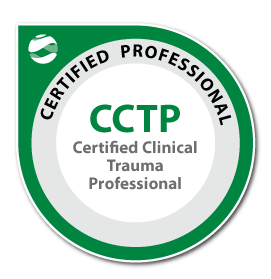The Ultimate Guide to Marriage Counseling

Is it just me or do more and more fairy tale weddings seem to end in marriage counseling rather than in happily ever after?
Think about the traditional fairy tales. These tales led us to believe the characters lived happily ever after. From an early age, we dream of the fairy tale wedding, but how many cartoons showed kids how to have the fairy tale marriage?
That is probably the reason that the divorce rate in this country constantly hovers around 50%. We are a culture devoted to the wedding, while the happily ever after only gets one line at the end of a movie.
Something must be done about that! In order to help more couples have their happily ever after, we have compiled the ultimate guide to marriage counseling: a look into how its tools and ideas can help couples have their happily ever after.
The Basics of Marriage Counseling
What is marriage counseling? Marriage counseling provides a safe place to discuss challenges with your spouse. A professional who can help you find new solutions to old problems can be invaluable. Through it all, marriage counseling is there to help you grow your relationship. It is a rarely instantaneous process.
Do you need marriage counseling? Though it is impossible to know for sure whether you need it, 93% of those who used marriage counseling said the tools recommended in the sessions found them helpful.
However, this can be a useful process if you are having a rough patch in your relationship. While some marital problems can be recent, some can sneak up after years of neglecting to communicate with your partner.
Understanding the causes of Marital Stress
In order to get an idea of how marriage counseling can help your relationship, let us take a look at how the challenges emerged. Generally, two or three areas of conflict lead up to the need for marriage counseling.
First, understand that you have a recording in your mind of how your parents and other grownups in your life interacted. You do not always carry your own values into a relationship. Instead, you often use this default mode of communication when meeting a potential partner.
 Therefore, understanding that recording can help you understand some of the challenges you have with your spouse who has their own recording.
Therefore, understanding that recording can help you understand some of the challenges you have with your spouse who has their own recording.
Second, examine the history of your marriage. Remember that a relationship with any lasting value will not only deal with the problems a couple faces today, but also with the decisions they made previously. Each partner recalls these events differently.
Marriage counseling can help couples look at one another with fresh eyes in the context of that history. Otherwise, they could get stuck in the idea that then was better than now. Reviewing history helps.
Third, money has been found to be the number one reason behind most marital disagreements. Working jointly on your finances can be challenging. The money issue can be one of the thorniest reasons that couples split up.
Fourth, sexual difficulties or infidelity are another reason couples pursue marriage counseling. Often, sexual issues are a symptom of a far greater problem. However, the issue of sex is the one that fans the flames of many couples’ challenges.
Keep in mind that if a couple wants to survive an affair, it takes a willingness to forgive and move forward. Both parties must be amenable to the therapy process.
Fifth, some couples use marriage counseling to mend broken fences with domestic abuse. However, if that is the case, counseling alone might not be the answer. Battered spouses should contact the local authorities if they are afraid.
Premarital Counseling
One of the best times to have marriage counseling is before you get married. Marriage has many benefits and drawbacks. Couples serious about spending their lives together should look into premarital counseling.
Then they can better adapt to married life and identify potential weak points in the relationship. This could stave off future needs for counseling if the relationship is threatened in some way.
Questions to Ask before Marriage Counseling
- Is there something challenging your marriage?
- Is there a significant secret you have not shared with your spouse?
- Do you feel like Rodney Dangerfield — never getting any respect in the marriage?
- Do you have trouble expressing your feelings?
- Do either of you display destructive behaviors that could end your marriage?
- Do you feel left out of a part of your spouse’s life?
- Are there any new stresses in your marriage (e.g. special-needs child, injury, loss of job, death in family)?
- Are you growing apart?
- Do you think you can make your marriage work?
- Does one partner emotionally or physically abuse the other?
- Do you repeatedly have the same argument or conflict without resolution?
- Do you find yourself thinking about someone else?
Tips to Improve the Process
Stay Connected. The first thing that all couples must do when going through the marriage-counseling process is to stay connected to each other. In John Gottman’s new book, The Relationship Cure, he discusses how happy couples have the ability to stay connected to each other when they argue. By respecting each other’s position and accepting your spouse’s position, you can strengthen the relationship.
Listen to your partner. While listening is undervalued in a lot of circumstances, it is especially common with those close to you. Often it becomes challenging to stop and listen to what your partner has to say. However, you learn the most when you shut up and listen. That is often because your spouse has a better insight into your own talents and flaws than you do. As long as you do not throw that in their face, you can do a lot to heal the relationship.
Do not hold it in. Penelope Trunk talked about how after her husband and she started to mend fences through marriage counseling, her husband made an honest effort to praise Penelope for all the little things she did. However, he kept posting praise on Facebook. He did not understand that anything posted on a Facebook wall becomes public. Her assistant kept emailing to let her know that her husband was praising her on Facebook. Finally, after three days she said thanks, but by that time her assistant and everyone else had viewed the posts. He said, ‘Oh yeah, I forgot,’ and kept sending posts. She waited until her next session to address the problem.
Think about your partner’s thoughts and feelings. This is a basic, but important, one. Whenever your partner makes a point, resist the temptation to respond at once. Reflect on what they said instead of spitting it back at them. Repeat what they said word for word, so you can get the gist of their remarks. You can then compromise.
Keep your frustrations in check. Everyone has frustrations in life. However, you need to identify and separate your frustrations from your partner. When you make a mistake, say you are sorry; no one is perfect. Likewise, accept when your spouse apologizes for a mistake. Do not hold your partner up to unrealistic standards.
Be aware of your space in an argument. Sometimes when an argument gets heated, you find yourselves physically standing in the same place while having the argument. Instead, move into a different space. That previous space might induce the negative feelings. Switching the space might diffuse some of the tension.
Have a date. Sometimes we get so busy with life that we forget to share it with the ones we love the most. Spend quality time with your spouse. Go on a date without the kids every once in a while, and enjoy each other’s company.
Listen with Your Heart. Stuff happens in life. When it does, realize that your partner might just need a supportive ear. They might not need you to come to the rescue on a white stallion. If you can listen to their problem, you can foster greater emotional attachment. Plus, the person complaining will feel better that they do not have to hold it inside. 
Laugh. Did you know that laughter physically improves your immune system and heart? At the same time, the endorphins it releases in your body lower stress and keep your body relaxed for up to 45 minutes.
It is also one of the keys to any successful relationship. We generally do not like to hang around boring people. Instead, we want to laugh and have fun. The more you can infuse humor into a situation, the more of a bond you can build with your spouse.
When life presents you with its myriad of challenges, a good laugh can be a great way to remind you why you fell in love with your partner in the first place.
Unconditional Love. You need unconditional love for your spouse. As most couples say during the “ceremony, ‘To have and to hold from this day forward…to love and to cherish from this day forward until death do us part.’ Your love must stand the test of time during all situations.”
Marriage takes work. If you want your marriage to work, then you have to persistently work at making it better.
Your marriage counselor is not there to fix your marriage, but to provide you with the tools and space you need to work out the problems between the two of you.
Be realistic. Often in marriage we have unrealistic expectations of our partners. This can transfer over to having unrealistic expectations of marriage counseling.
Do not expect one or two 45-minute sessions to resolve ten years of problems. Instant gratification is unrealistic. Instead, have the patience to let the therapeutic process resolve your issues over time. There is no immediate magical turnaround.
Grow as an individual; do not fix your spouse. Some spouses want to fix their partner. There is some part of them that they want to improve.
When you look to fix your partner, however, you neglect to grow yourself. Ask the same questions about yourself that you ask about your partner. Then discover how you can grow. You and your partner then have the opportunity to grow as individuals and as a couple.
Compromise. Do you remember the term Mutually Assured Destruction from your textbooks? This was the term that the US and Russia had with their nuclear weapons program. Essentially, if you destroy me then I will destroy you.
Often couples get into an all-or-nothing fight for survival. However, love requires compromise. Work together to find an intermediate solution that blends both partners’ needs, wants, and values.
Different Forms of Marriage Counseling
Emotionally Focused Therapy – One of the most effective means to reduce marital challenges is through Emotional Focused Therapy (EFT). EFT focuses on changing the feelings many couples have that can spoil their marriage.
Often partners let emotions foil their ability to successfully communicate what they want. It has been proven that EFT’s ability to help couples communicate in turn helped 70% of couples improve their relationship. Two years after therapy, the vast majority of those couples maintained that improved relationship.
By allowing yourself to be vulnerable in a counseling session, you’re better able to get to the root of the problem and help resolve the underlying issues that face your partnership.
Resistance is a sign that you still have feelings that you need to focus on expressing.
Marriage Friendly Therapy – Here is a disturbing thought. Most therapists are trained in individual therapy, not couples therapy. That means they are skilled at helping people with their individual problems.
So they do not always do their best for a couple in these situations. Instead, identify a counselor who can work with both of you as a couple. It makes the marriage counseling process more successful.
Behavior Modification – Behavior modification therapy is useful in understanding the solutions to the problems at hand. The more you know about the solution, the more you can change your behavior toward your spouse.
Note: If there is physical abuse or drug use, then additional help may be needed. That includes the abused spouse going into a shelter for abused women or the addict being admitted into a treatment center.
Insight-Oriented Therapy – Part of the reason that couples are in therapy is because they have trouble communicating to each other their point of view. This can often lead to blame and arguments.
By using insight-oriented therapy, your therapist helps you understand each other’s point of view, and you can interact with each other more effectively.
Marriage counseling requires that you not only identify what works well in a marriage. It also requires you to identify unmet wants and needs.
How can you explain your hopes, dreams, and concerns if your partner does not understand them clearly?
“The Big D”
Divorce is, no doubt, a difficult transition in life. Yet sometimes marriage counseling shows that the marriage is beyond repair.
Gottman found The Four Horsemen of the Apocalypse that predict divorce or satisfied marriages.
He found that the four biggest negatives that destroy a relationship are criticism, defensiveness, contempt and stonewalling. As he says, ‘most relationships will have some of these; healthy relationships don’t use them nearly as often and do more to repair them when they are used.’
Here are a few warning signs that might be useful to discuss when going through marriage counseling.
First, do you just occupy the same space with your partner? Remember when you first started dating? You probably could not take your hands off your partner. Everything was fresh and exciting.
Unfortunately, sometimes couples lose that excitement over time. Often they start to do no more than occupy the same space. While you need not have the same spark you did when you first started dating, you have to be more than roommates.
Second, are you merely staying together because of the children? The problem here is that your kids need you to be supportive, unified partners in the marriage. If you have an unhealthy relationship, your children pick up on that and it helps no one. Instead discuss with your counselor different ways you can create or re-create a positive, loving environment.
Final Thoughts
So, how do you believe marriage counseling can provide you with your happy ever after? Will it help heal old wounds? Will it allow you to rekindle your love with your spouse?
Let us know how we can help you with your marriage counseling needs by calling us at 847-824-8366.



